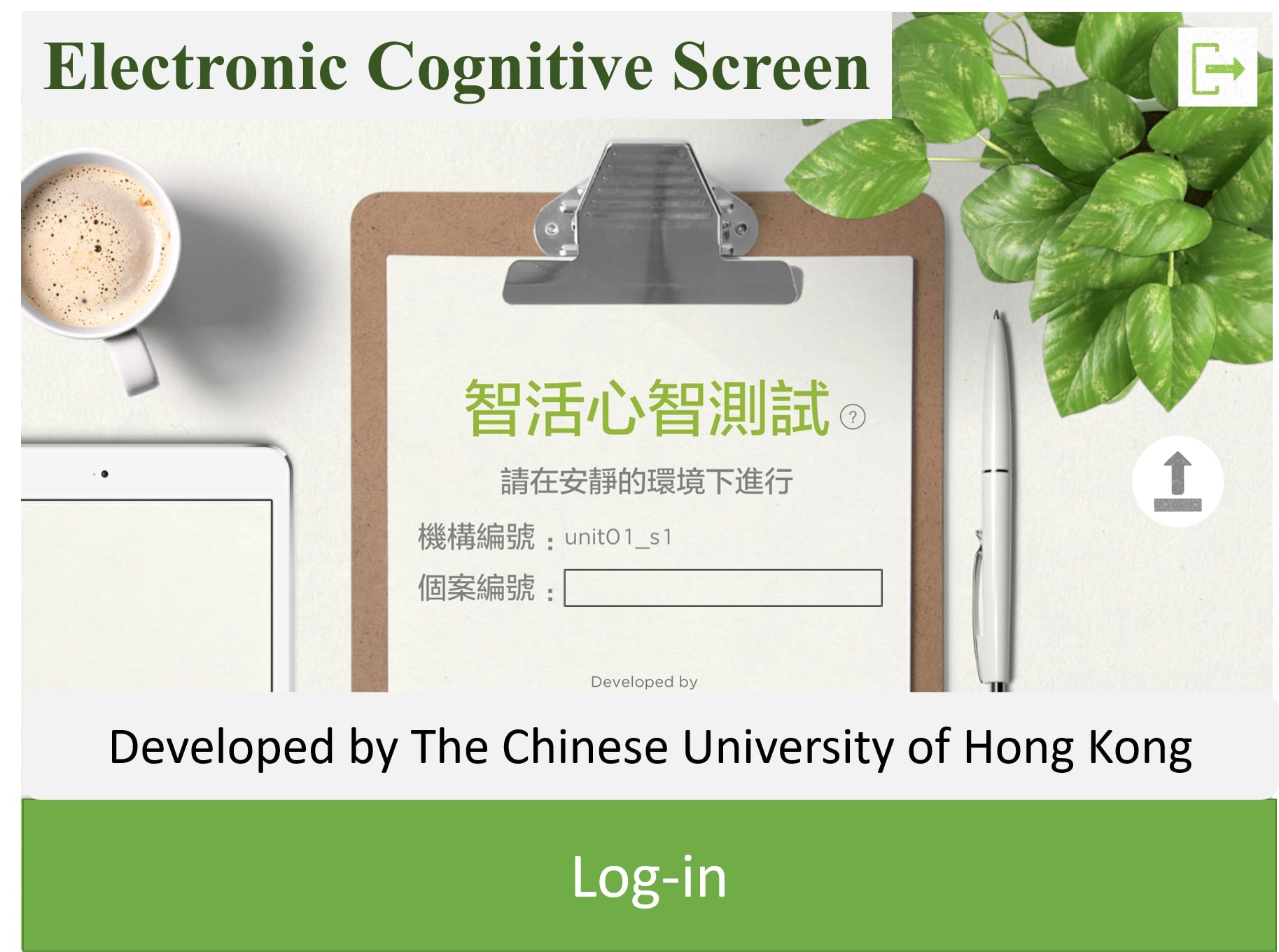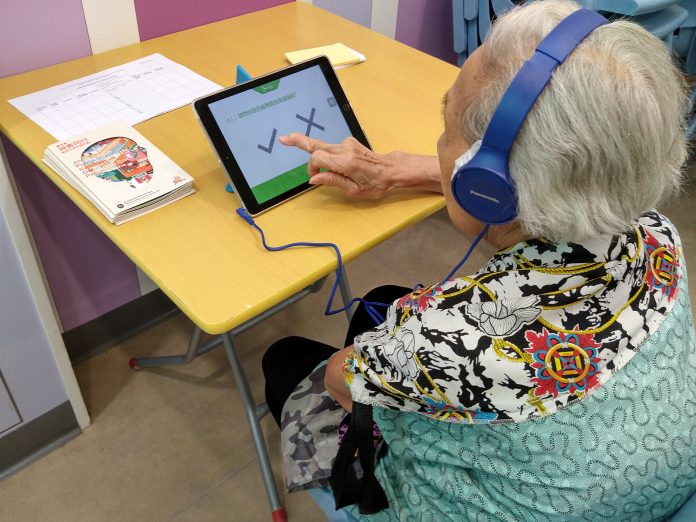Timothy Kwok, Professor at The Chinese University of Hong Kong, tells us about the Electronic Cognitive Screen (EC-Screen) that gives a brief and user-friendly digital cognitive test for the detection of dementia in older people
My client tells me that her grandmother has signs of cognitive decline, her grandmother also aware of her memory loss. She worries about her grandmother’s deterioration of cognitive functions. However, she does not know whether her grandmother needs to seek medical advice.
In Hong Kong, it is estimated that 10% of the population aged over 65 suffers from dementia. Early detection of dementia can help an older person with dementia and his/her family to work out a plan to cope with the changes and receive care and support from healthcare professionals.
Yet there are many barriers against the early diagnosis of dementia. Firstly, older people with dementia may not have insight into their predicament and may be too embarrassed to complain about it. Secondly, the family members may have a low expectation on the cognitive performance of their older family members. Thirdly, older people with dementia may be reluctant to seek medical care.
EC-Screen: Checking dementia risk
A brief digital cognitive test which can be administered in the home or community setting may help the older person and his/her family to decide whether they need to seek medical and professional advice. We have, therefore, developed a brief and user-friendly digital cognitive test called the Electronic Cognitive Screen (EC-Screen) which aims to promote the early detection of dementia in primary healthcare and community settings in Hong Kong.

The EC-Screen is a free online cognitive test developed by the Department of Medicine and Therapeutics, The Chinese University of Hong Kong and the Jockey Club Centre for Positive Ageing. Its development and evaluation are funded by The Hong Kong Jockey Club Charities Trust.
The EC-Screen is a brief digital cognitive test in Chinese. It uses a cloud-based platform and runs on a tablet or iPhone. The EC-Screen is designed to be self-administered. The platform reads out all the questions and then prompts the examinee to select the answer on the touchscreen. But for those who are not familiar with the tablet or the internet, a family member or a layperson can easily provide guidance. The administration time is approximately five minutes.
The EC-Screen is adapted from a validated paper-and-pencil cognitive test called the Rapid Cognitive Screen test. A major advantage of the digital version is that behavioural data, for example, the time taken to complete a test item, can be captured accurately, and we have found that this has added value in detecting dementia. Besides, the EC-Screen allows automatic administration and scoring.
The flow of the EC-Screen is as follows:
- Provides consent via the platform.
- Provides his/her personal information, include (a) year of birth, (b) gender, (c) education level and (d) area of residence.
- Answers the three digital cognitive tests, include (a) clock setting test, (b) story test, and (c) five-word delayed recognition test. The clock setting test assesses executive functions and visuospatial abilities. The story test assesses mental flexibility. The five-word delayed recognition test assesses memory function.
- After he/she finishes the test, a recommendation of whether he/she requires medical and professional advice will be given to him/her.
- To overcome the problem of low literacy, the platform has a special version which reads out all the answer options for their selection.

EC-Screen diagnostic performance
We conducted a validation study to evaluate the diagnostic performance of the EC-Screen. A total of 126 cognitively normal controls, 54 participants with mild cognitive impairment (MCI), and 63 participants with early dementia were recruited from the research memory clinic and community. The diagnostic performance of the EC-Screen was found to be satisfactory. In differentiating participants with MCI and dementia from control subjects, the sensitivity and specificity were 0.81 and 0.80, respectively. There is also a significant and high correlation with the Montreal Cognitive Assessment (r = -0.67).
We, therefore, conclude that the EC-Screen is a brief and reliable tool to enable older people or their family to check for risk of dementia. It is envisaged that those who fail the test will be prompted to seek medical or professional advice, leading to an earlier diagnosis of dementia.
Reference
Chan JYC, Wong A, Yiu B, Mok H, Lam P, Kwan P, Chan A, Mok VCT, Tsoi KKF, Kwok TCY. Development of the Electronic Cognitive Screen Technology for the Screening of Older Adults with Dementia and Mild Cognitive Impairment in a Community Setting: A Validation Study. J Med Internet Res (In press). doi:10.2196/17332.
*Please note: This is a commercial profile











